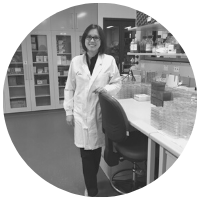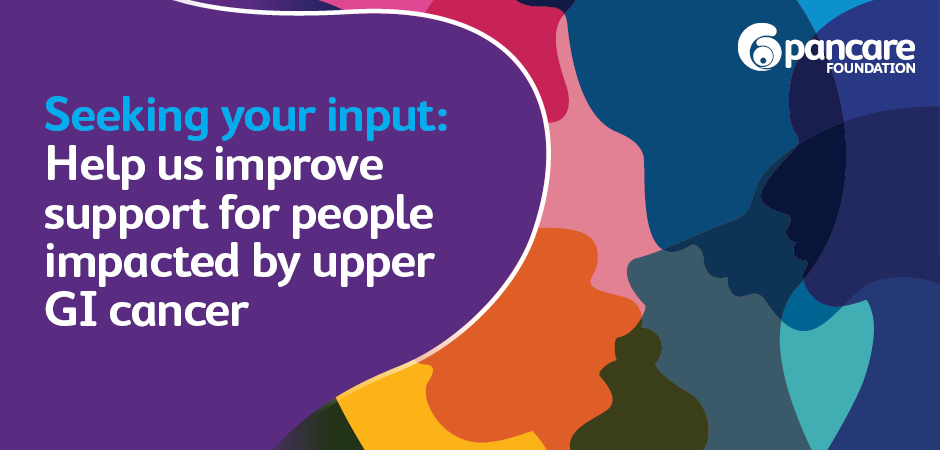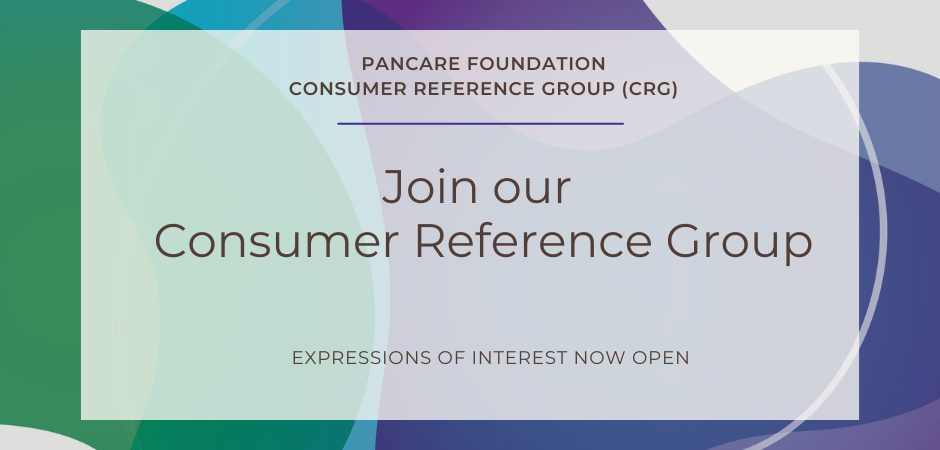Pancare Scholarships & Awards Program
Pancare recognises that fostering an engaged clinical research community is a major factor in developing research programs and clinical trials that will progress the therapies and best-practice care for those impacted by upper gastrointestinal (GI) cancers into the future. In line with Pancare’s ‘Supporting Future Leaders’ pillar in its Research Strategy, Pancare funds a range of scholarships and awards for emerging leaders in the field of upper GI cancer research.
The aim of the Pancare Scholarships & Awards Program is to engage early-career researchers in accelerating world-leading research and clinical trials that will deliver results that improve outcomes and quality of life for those living with upper GI cancer, their carers and families.
The Pancare Scholarships & Awards Program includes regular awarding of funds to emerging researchers with high-quality projects that have the best chance of positively impacting the lives of those who are affected by pancreatic, oesophageal, stomach, liver and biliary cancers.
Learn more:
> Pancare’s Scholarship & Awards Research Programs Brochure 2022
> Read more about Pancare Foundation’s Scholarship Winners 2021
> Head to our homepage and sign up to our newsletter to receive updates on Pancare’s Research Programs
2022 Pancare Foundation scholarships & awards
Smith-Barrett Fellowship

Pancare is proud to host the Smith-Barrett Fellowship – supercharging biliary cancer research. This award is supported by funding provided by the Highland Foundation, founded by the Smith family, of PFD Food Services. It has been created in memory of long-standing close friend of the Smith Family, Rod Barrett, who bravely battled biliary cancer and passed away in January 2020.
Rod, head of Ford Performance Vehicles for a time in the mid 2000’s, had a long-time involvement in the V8 motor industry. He was known for his genuine passion, drive and enthusiasm for the industry, ignited the first time he drove a supercharged Falcon GT.
This fellowship is created in the spirit of Rods drive for supercars, to accelerate biliary cancer research by encouraging and supporting early-career researchers to take up a career in biliary cancer research.
This award is open to clinical and research post docs (1-5 years following completion of PhD), to achieve highs research priorities of identification of new therapeutic targets, risk factors, early detection, clinical care and clinical trials in biliary cancer.
Value: 2-year funding $50,000/y with an option to apply for a 3rd year $100,000 top-up for a project performance that meets its expectations and has potential to take to the next level through additional funding. Starting July 2022.
Funds for this project were kindly donated by the Rod’s Accelerator for Biliary Cancer – a Highland Foundation Initiative fund.
For more information please visit the Scholarship Guidelines and Application Form.
Timothy McGahan Research Scholarship

Pancare is pleased to be offering a PhD Scholarship dedicated to pancreatic cancer research in memorial to Timothy McGahan.
Tim McGahan was a respected vascular surgeon from Brisbane, well known for his friendly demeanour and ability to calmly navigate high stress situations. Before this, however, he was a caring brother to nine, enthusiastic father to three, doting grandfather to two, adoring husband to one and unconditional friend to countless others. Tim was diagnosed with metastatic pancreatic cancer in May of 2020, and despite a legendary battle, passed away just shy of 12 months from his diagnosis. Tragically, his younger brother Andrew, a celebrated author, died from the same disease two years earlier.
Even for those known to be at higher risk, diagnosis of pancreatic cancer is usually made too late. We must come up with better ways of detecting this aggressive disease before it spreads.
Although devastated by his loss, the social and professional community Tim left behind were invigorated by his legacy to “fulfil your potential” every single day. As a result, nearly $75,000 was raised for Pancare in his honour. The McGahan family now hope this money will help a dedicated PhD candidate fulfil their own potential in finding new ways to diagnose this terrible disease earlier.
Value: $65,000 ($21,600 per year over three years) starting July, 2022
Funds for the Timothy McGahan Research Scholarship have been graciously donated by the McGahan family and friends.
For more information please visit the Scholarship Guidelines and Application Form.
2022 scholarship and award recipients

Dr Yi Ma, a general surgery registrar from the Department of Surgery, University of Melbourne at the Austin Hospital has been awarded the 2022 Tim McGahan Scholarship, to continue his PhD studies on PAK in pancreatic cancer progression and its therapeutic potential.

Dr Omali Pitiyarachchi, a medical oncologist and PhD candidate from the Lowy Institute of Medical Research, University of NSW, has been awarded the 2022 Tim McGahan Award of Merit. Throug her PhD research, Dr Pitiyarachchi aims to establish a live-tracking approach to measure therapeutic responses in a patient derived explant model of pancreatic cancer.

Dr Ian Luk, a post-doctoral research fellow from the Olivia Newton John Cancer Research Institute has been awarded the Smith-Barrett research fellowship. His research will develop an essential new model for studying biliary cancer and assessing effectiveness of new treatments.
In 2022, Pancare Foundation will deliver $170,000 of much needed support for early-career researchers through our scholarship and award program. Since establishing Pancare Foundation in 2011, we have delivered more than $15.7 million for Australian research programs and patient and carer support services. We have played a significant role in maintaining national focus on these devastating cancers.
Cancer Australia Priority-driven Collaborative Cancer Research Scheme
Additional to the Pancare Scholarships & Awards Program, Pancare actively supports Cancer Australia’s Priority-driven Collaborative Cancer Research Scheme (PdCCRS) with collaborative funding for early-career projects to support research that reduces the impact of cancer on the community and improves outcomes for people affected by cancer.
Pancare is currently supporting a 2019 PdCCRS Project Grant scheme (Dr Kara Vine-Perrow, University of Wollongong) and the 2021 PdCCRS Early Career Research stream, for which funding will begin in 2022.
Past Pancare Scholarship & Award Winners
Scholarship winner: Ms Antonia Cadell
Institution: Garvan Institute of Medical Research
Project: Significance of Subcellular JNK Activity in Pancreatic Cancer.
Cancer type: Pancreatic
Through her PhD research, Antonia aims to establish the significance of subcellular ‘JNK’ activity in pancreatic cancer and determine whether the novel therapeutic agents capable of specifically targeting oncogenic JNK activity in triple negative breast cancer will also be relevant for the treatment of pancreatic cancer.
Scholarship winner: Dr Michael Kuan-Ching Lee
Institution: Peter MacCallum Cancer Centre & University of Melbourne Centre for Cancer Research
Project: Alternative Splicing as a New Therapeutic Strategy
Cancer type: Pancreatic
Dr Michael Kuan-Ching Lee, a medical oncologist from the Peter MacCallum Cancer Centre and the University of Melbourne, has been awarded the 2021 Onwards & Upwards Damien Woodruff Scholarship, to continue his PhD studies on targeting alternative splicing as a new therapeutic strategy for pancreatic ductal adenocarcinoma.
Alternative splicing is a method that cells use to create many proteins from the same strand of DNA. Dr Lee aims to uncover the biology of how PRMT5 inhibitor therapies work together to change the range of spliced events in pancreatic cancer cells and thereby slow or stop the growth of pancreatic tumours. This information may be critical to better select patients for therapy and/or uncover additional rationale for combination treatment in the future.

Scholarship winner: Dr Ashleigh Poh
Institution: La Trobe University and The Olivia Newton John Cancer Research Institute (ONJCRI)
Project: Targeting HCK in pancreatic ductal adenocarcinoma to restrict tumour growth and metastasis.
Cancer type: Pancreatic
Dr Ashleigh Poh’s jointly funded PdCCRS project defined the therapeutic benefit of targeting a protein known as Haematopoietic Cell Kinase (HCK) in pancreatic cancer. The HCK enzyme is expressed in a type of immune cell known as a macrophage, which are a major component of pancreatic tumours. The more HCK activity a macrophage has, the more it is able to promote tumour growth. Dr Poh’s work hypothesised that the inhibition of HCK would reduce pancreatic cancer progression and spread by impairing the ability of macrophages to promote tumour growth. Publication of this research is expected in 2021.
This scholarship resulted from a key collaboration between Pancare, Cancer Australia and the Cure Cancer Foundation through Cancer Australia’s PdCCRS grant funding program.

Scholarship winner: Dr Venessa Chin
Institution: Garvan Institute of Medical Research, NSW
Project: Biomarker and Targeted Novel Drug Development in Pancreatic Cancer
Cancer type: Pancreatic
A Medical Oncologist now at the Kinghorn Cancer Centre at St Vincent’s Hospital in Sydney, Dr Venessa Chin completed her PhD work within the Personalised Cancer Therapeutics group at the Garvan Institute for Medical Research. Dr Chin was the inaugural winner of the Phil Sly Research Scholarship in 2013, which supported her project which used genomics to inform therapeutic discoveries in pancreatic cancer. The project included a meta-analysis, in vitro and in vivo analyses of rationally-selected drug targets as well as an analysis of real-time metastasis formation in the pancreas.
Dr Chin used her Phil Sly Research Scholarship funds to support her contributions to several high-impact publications, including seminal articles in Cochrane Reviews, Expert Reviews in Molecular Medicine and the World Journal of Gastroenterology. This important body of work is continuing to deliver the research framework for positive outcomes for those affected by pancreatic cancer.

Scholarship winner: Dr Kai Wang
Institution: The University of Melbourne, Vic
Project: Inhibition of PAKs suppresses tumour progression, improves survival and enhances effects of chemotherapeutic agents.
Cancer type: Pancreatic
Dr Kai Wang was awarded the Moshe Sambor Research Scholarship in 2015 for his work on pancreatic cancer at the University of Melbourne. Ultimately completing his PhD in 2019 with support from the award, Dr Wang produced five high-impact research publications and delivered several international presentations.
P21-activated kinases (PAKs) are down-stream effectors of KRAS oncogene, which predominately drives the development of pancreatic cancer. Dr Wang investigated the role of PAKs in tumour biology and therapeutic regimens. He discovered that inhibition of PAKs can suppress tumour progression, improve survival in mouse models and enhance the effects of chemotherapy agents. He also showed that PAKs were potentially involved in the body’s immune response against cancer cells. His work is continuing in Melbourne and has led to the discovery of new medicines being developed to fight pancreatic cancer.
Following his PhD graduation, Dr Wang returned to China and continued his general surgical training in a Hangzhou, First People’s Hospital, Zheijang Unveristy.
Dr Wang said, “Study and living experience in University of Melbourne was a part of valuable and precious memory in my life. I do appreciate the Pancare Foundation for giving me the Moshe Sambor Scholarship to support my PhD research in pancreatic cancer. I firmly believe that research project investment could re-shape our management of cancer.”
This award was made possible by Mr Perry Sambor, businessman, advocate of Victoria’s racing industry and Founding Director of the Live Life Foundation. This award honoured Perry’s late father, Moshe, who battled with stomach cancer.
This award enabled a talented clinician-scientist, Dr Wang, to undertake three years of research in Australia as part of a PhD degree, which has gone a long way to improving outcomes of patients with pancreatic, liver, biliary, stomach and oesophageal cancers.
Learn more about the research programs we support and how you can help make a difference.






